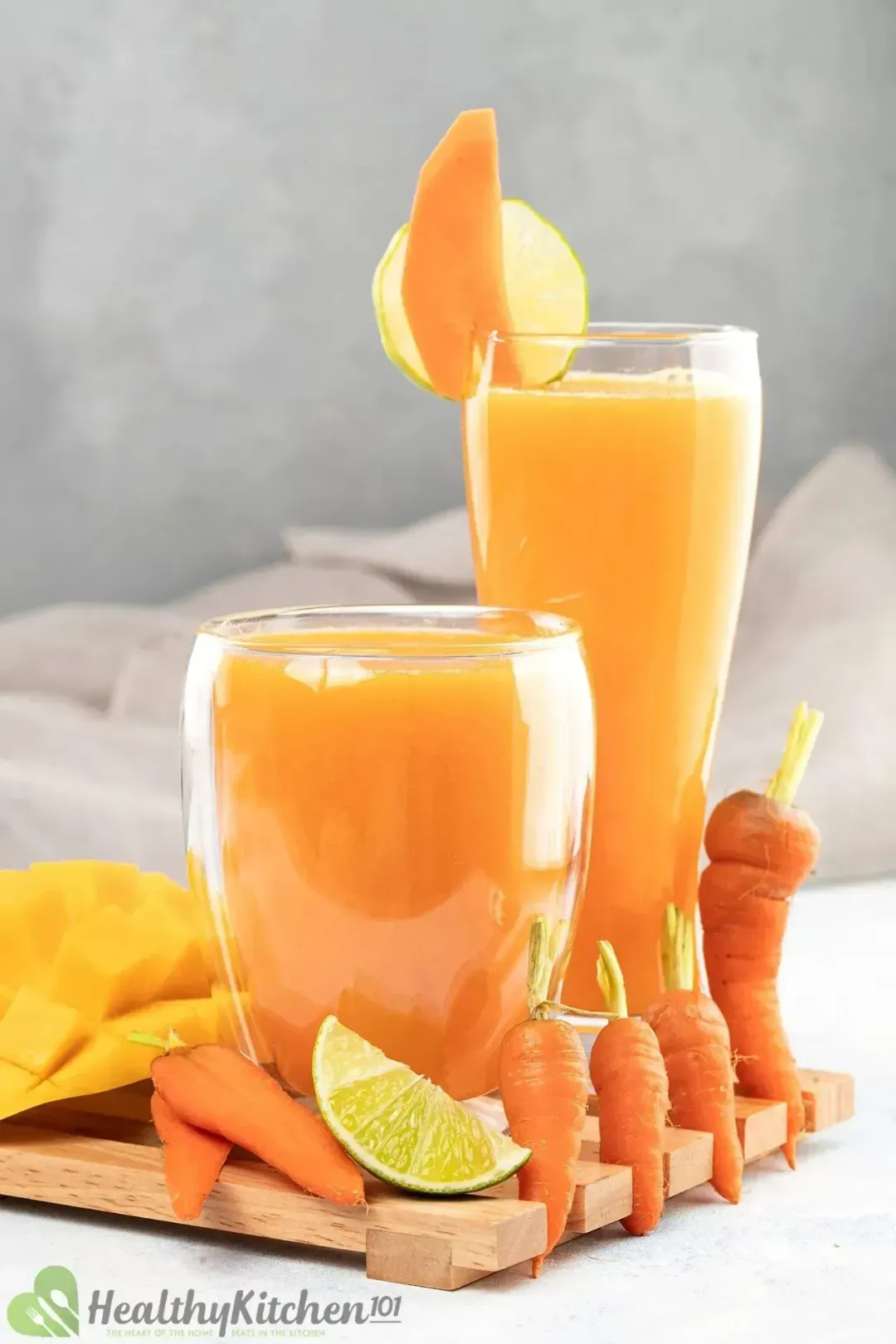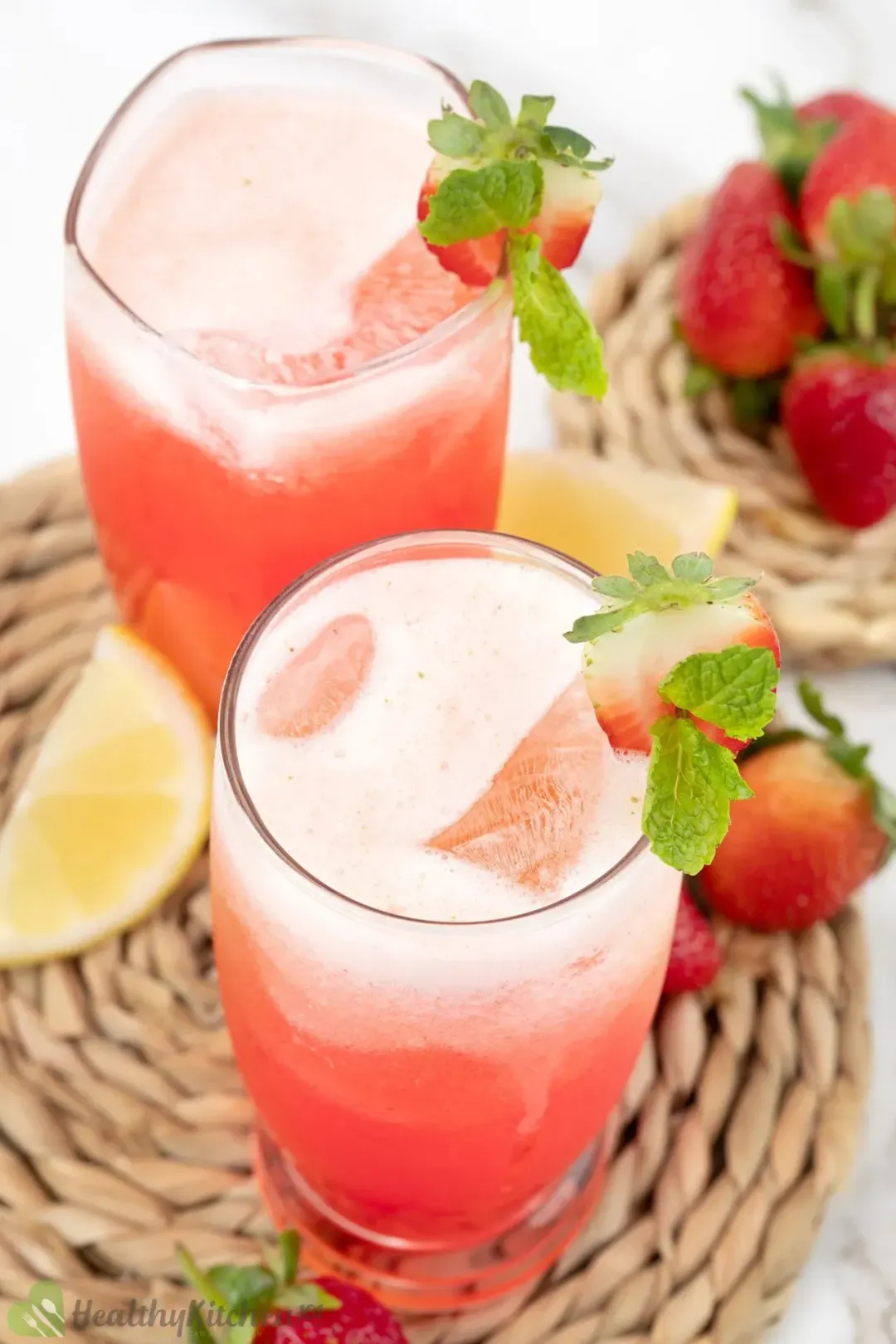An orange juice recipe is always great to have on hand — what with their weight loss and skin-glowing benefits. But, orange juice is not just healthy, it’s pleasantly refreshing too. And whether it’s pulpy, plain, freshly squeezed, or frozen, ‘good’ juice leaves you wanting more.
As a result, there are countless choices out there. Our orange pomegranate juice, this ginger ale and orange juice; trying to narrow them down is like going in circles.
Light and Refreshing Orange Juice Recipes
Over the decades, orange juice has won much praise. And justly so. Almost everyone can attest to its versatility as a breakfast beverage, a party drink, or a cocktail complement.
But it’s even more gratifying when you know what you’re serving. So, here we have the top 10 orange juice recipes to help inspire you in your juicing journey.
1. Vodka and Orange Juice
This bare approach to a cocktail is subtle yet effective. Better termed a Screwdriver, it incorporates vodka to enhance the sweet taste of orange. And with this simplistic vodka and orange recipe (Screwdriver), you can show off your cocktail skills at dinner.
Go to Recipe2. Simply Orange Juice
With only two ingredients, this recipe is a delightful choice for orange juice lovers. The only addition is honey to add another flavor note. Honey is rich in antioxidants that may lower blood pressure, so it’s a great alternative to sugar. And there are few better ways to celebrate freshly squeezed juice.
Go to Recipe3. Orange Pineapple Juice
Orange and pineapple create a fresh blend of citrus-tropical flavors. This orange pineapple juice recipe is kid-friendly and fits in nicely with breakfast meals (and parties too). Even if you enjoy a tangy flavor, adding sugar tones it down to an appreciated level. So if you’re staying away from processed sugar, replace with honey, syrup, or your sweetener of choice.
Go to Recipe4. Milk and Orange Juice – Morir Soñando
Milk and orange juice, together, is soothing. Is it an odd combination? Maybe. Should you try it? Absolutely. The creamy element provided by yogurt lends nutrients, including calcium, B-vitamins, and protein. Still, the texture remains light enough to serve as a breakfast beverage.
Go to Recipe5. Carrot Orange Juice
This carrot orange juice is another kid-friendly juice recipe. Carrot juice is nutrient-rich. On top of eye health, its beta-carotene properties will help boost your immune system, (and it’s a simple way to sneak healthy calories into your kids’ meals!)
Go to Recipe6. Orange Juice and Champagne
Also known as a mimosa, this cocktail remains a classic with minimal effort. It’s easy enough to make for crowds but doesn’t call for an occasion. Its simplicity means you can unwind with a glass, or have it with a friend. And besides the bubbly visual, sparkling wine is a piquant contrast to the sweet orange, yet marries it well.
Go to Recipe7. Rum and Orange Juice
This rum and orange juice recipe is a little rum goes a long way. Rum’s sweet aroma pairs well with orange, while club soda enhances the taste of orange. So though the two main ingredients have a sugary element, the complete taste is a balanced sweetness.
Go to Recipe8. Whiskey and Orange Juice
Orange juice and whiskey are an unusual combination. But the spicy and sweet duo deliver an unexpected kick, which rouses more appetite. So you’re better off having it at lunch. Better yet, get some friends to enjoy this robust cocktail over dinner.
Go to Recipe9. Carrot Orange Pineapple Juice
This mix of citrus and vegetable flavors creates an interesting and nourishing beverage. The sweetness of carrots and orange is accompanied by a hint of tangy pineapple flavor. And it's best enjoyed ice-cold, with a complimentary meal to savor the flavors.
Go to Recipe10. Orange Mango Juice
Waking up to the tropical taste of mango and citrus flavors is uniquely refreshing. Plus, mangoes are jam-packed with nutrients! They’re high in antioxidants and help to boost your immune system. And with orange and lime juice in the mix, it makes a sobering beverage ideal for breakfast.
Go to RecipeIn light of these recipes, you can use orange juice for any occasion. Or, you can store some and drink it throughout the week. It also helps to know that any oranges will do, such as blood oranges, mandarins, or tangerines. There will be some variation in flavor, but overall it will still taste like orange.
And freshly squeezed juice is the star in these recipes. It’s a bit more work than pouring store-bought juice, but you’ll be pleased with the taste and quality.
In any case, feel free to substitute with orange juice of your choice. Just keep in mind how nutritional content may differ. And even with an appealing collection, it boils down to what you appreciate in a drink. With that said, pick your go-to recipes, and happy juicing!
How to Make
Traditional methods of making orange juice have evolved; it’s hard to select the best one. But you don’t have to. The best way to make juice depends on personal preference. Do you like yours pulpy? Use a reamer; prefer it chunky? Blend away. Smooth? Strain it. Your taste tells you your method.
That said, there are three main ways to make this juice: blending, electric, and manual juicing. All three are quick and easy to follow. And freshly-squeezed juice tastes even better, is purer, and the only additives in there are what you choose.
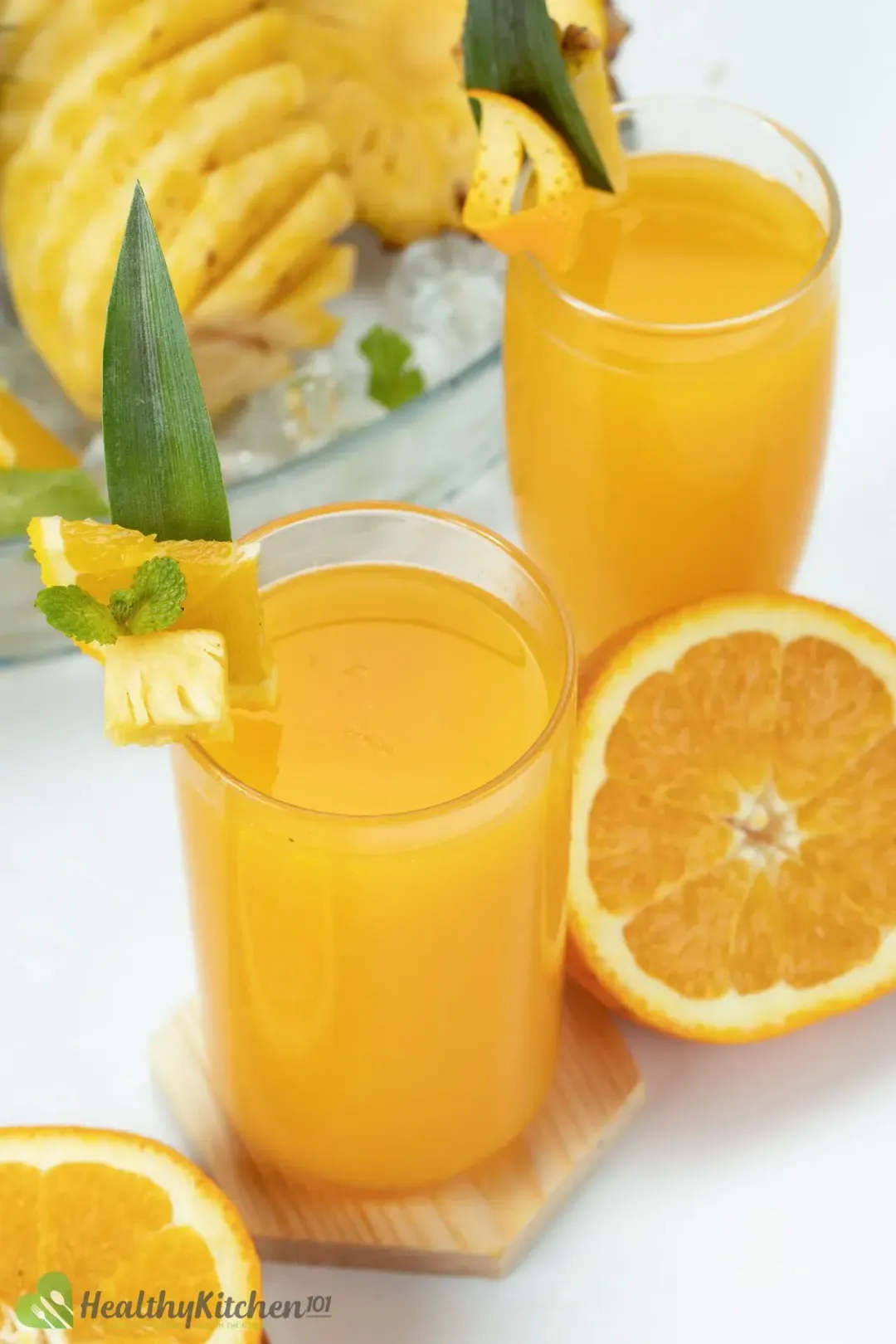
1. Blending
Of all the three, blending is the most chunky method. After washing, peeling, and deseeding the oranges, blend the remaining membranes. Blended orange juice is also the most nutritious— given that you serve it as is.
If you prefer it with no-pulp, pass it through a mesh or sieve while pressing down with a spatula until the juice has passed through.
2. Electric juicing
Using an electric juicer creates a more refined drink. You’ll also do the least work here since you put the segments into the juicer right after peeling. And unless you enjoy bitter orange juice, you want a clean membrane with no pith and seeds. Then, use the pusher to press the fruit down while extracting the juice.
3. Manual Juicing (Reamer)
Manual juicing requires more effort, but it’s the most gratifying method. Vertically slice the orange after pressing and rolling it. Then place one half of the orange onto the reamer, and twist.
Twenty seconds for each half is enough to extract all the orange juice (and give you a steady wrist workout!)
Calories
Orange juice is a healthy, low-calorie beverage. The juice of one orange has less fiber and ultimately lower calories than one full orange. Though, it takes the juice of roughly three oranges to complete one serving of this juice (240 ml). And this provides almost twice the carbohydrates of a medium orange. That’s twice the calories (and sweetness) in one helping.
Health Benefits
Fresh orange juice is nutritionally rich and low in calories. Drinking it also provides you with immune-boosting antioxidants. As a result, it can assist in managing your weight and preserving good skin.
1. For Weight Loss
A great many diets may promise to effectuate weight loss. But the truth is, without closely monitoring caloric intake, you can lose track of the calories you eat versus the ones you burn. Orange juice is low in calories and has been proven not to contribute to obesity. So it’s great for incorporating into your weight loss diet.
And paired with a low-calorie diet, this juice has shown positive weight loss results. So along with including it into your diet, also watch what you are eating.
2. For Skin
Orange juice contains carotenoids, and they contribute to vitamin A activity. So consuming it helps to maintain your immune system and protect your eye cells.
Carotenoids found in the skin indicate the positive effect of antioxidants in the body. And regularly consuming fresh juice increases these carotenoids. They protect your skin from sun damage and environmental hazards. But that’s not to say orange juice should replace your sunscreen! Using both together will provide the best results
How Much Juice is There in One Orange?
The juice from 1 medium orange provides roughly 39 calories, with most of them from carbohydrates in the form of fruit sugar. It amounts to 1/3 of a cup of this juice or just under half a serving.
Nutrition
Orange juice is highly nutritious. In addition to plenty of vitamin C, other considerable nutrients you get include calcium, folate, and potassium.
1. Calcium
Each one-cup serving of this juice provides 2.6% of the Reference Daily Intake (RDI) of calcium, which is low compared to fortified orange juice.
However, fortified foods may contain particular nutrients that your body has a harder time absorbing. They also pose the risk of excess nutrient intake leading to adverse effects such as prostate cancer. So though it provides a higher serving of calcium, 100% orange juice is best.
2. How Much Sugar?
100% pure orange juice contains no added sugars. Still, you can appreciate its natural sweetness because a cup contains 21 grams of sugar (almost two tablespoons!) But they’re ‘good’ sugars; nutrient-rich with vitamins and antioxidants.
3. How Much Vitamin C?
Oranges are among the best sources of vitamin C. A medium fruit contains roughly 70mg, 93% (RDI) of vitamin C. Or, over five times the amount in a large apple. However, it would take two oranges to provide the same amount of vitamin C in a serving of orange.
4. Health Benefits of Oranges
On top of being a juicy snack, oranges offer heaps of health benefits. They’re not just immune-boosting; the nutrients present also help to promote eye health. The high content of vitamin C in oranges has been linked to a lowering in age-related vision loss. And these same antioxidant properties help to boost the immune system.
Also, regularly consuming oranges may improve heart health. They’re rich in potassium, with one medium orange providing 5% of the Recommended Daily Intake (RDI). As a result, they contribute to controlling high blood pressure.
FAQ
1. Is This Juice Healthy?
Yes, it is. And drinking it is an excellent way to obtain vital nutrients in a single serving. In addition to providing 165% RDI of vitamin C, a cup of pure orange contains 10% RDI of potassium. In turn, high potassium intake lowers blood pressure, which leads to lower stroke risk.
Orange juice is also anti-inflammatory. So consuming it may help prevent chronic diseases. Moreover, it nourishes through phytonutrients that may benefit heart health and inhibit cancer growth. Long term consumption of orange juice is linked to lower cholesterol levels. So it might be a brilliant idea to drink it more frequently.
2. Is This Juice Good for the Flu?
To some extent, yes. It is not a magic cure-all. So note that orange juice is not a remedy for the flu or cold. Though it reduces symptoms by 85%, it’s only in experimental megadoses of 1000mg of vitamin C. Over 13 times the RDI!
However, incorporating it into your diet helps to boost your immune system over time. It’s like building blocks. A cup serving of orange juice contains 124 mg of vitamin C, which is well over 100% RDI. By giving the vitamin C time to strengthen your defenses, you can perhaps reduce the duration of a cold.
3. Is It Good for Hypoglycemia?
Absolutely, yes. Hypoglycemia is a condition that indicates low blood sugar. And one of the causes is insufficient carbohydrates. When you drink a glass of orange juice, you get 26 grams of carbs— almost twice the amount you need to treat hypoglycemia.
4. Is It Really Good for You?
Given its nutritional content, this juice is primarily healthy for you. Despite the controversy it sparks as a cold-cure, there’s sufficient reason to rely on it for healthful elements.
For instance, including it in your breakfast regularly will guarantee you a substantial supply of antioxidants such as vitamin C, carotenoids, and folate. But when considering orange juice with added sugars, we advise you to limit your intake to prevent the risk of (type 2) diabetes.
5. Is Tropicana Really 100% Orange Juice?
Yes, Tropicana has 100% orange juice with no added sugars, water, flavors, or preservatives.
But Tropicana also produces pasteurized orange juice with added vitamins C and E. This means they heat it to high temperatures to eliminate bacteria, then fortify it. And while some nutrients are lost in the process (and some are manually replaced), both products are labeled as 100% orange. So, to be sure, you can distinguish the two by reading the ingredient labels. We recommend doing this for most— if not all— food products before purchasing.
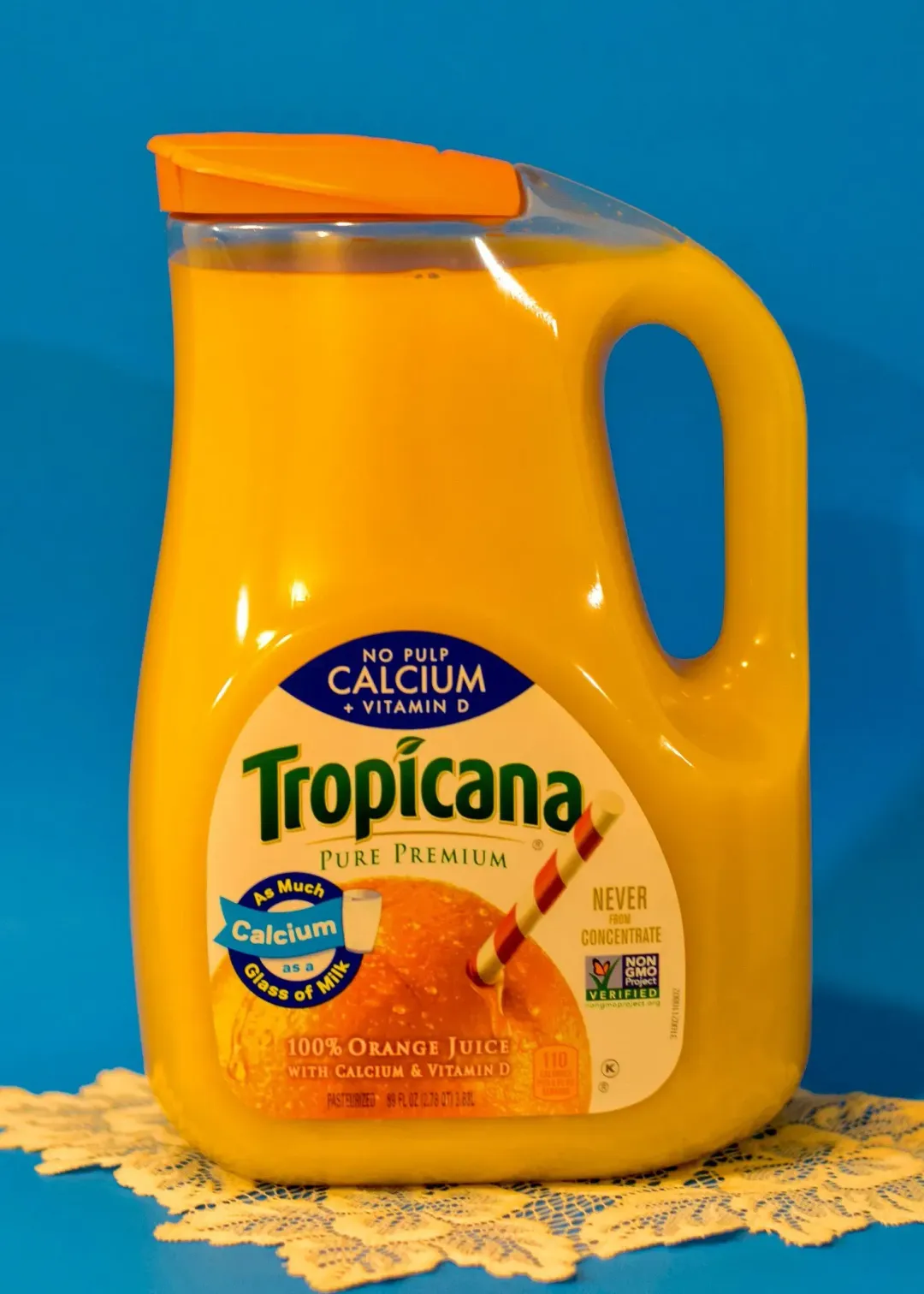
6. What Are the Best Oranges for Juicing?
Navel oranges are the best for the job. They are a seedless, easy-to-peel variety that’s ideal for juicing. You spend less time preparing them, and that’s great for producing party-gallons of orange juice! The only downside is you can’t store them for long as they develop a ‘delayed’ bitterness that alters the taste.
7. How Long Does It Last?
It depends on the type of orange juice. Freshly-squeezed juice is prone to harmful bacteria. Moreover, the FDA states that you shouldn’t keep raw foods outside a refrigerator for more than 2 hours. So it’s best to keep it refrigerated; we suggest no more than three days.
In contrast, store-bought orange juice lasts from 1-2 weeks. That’s because it’s pasteurized and has additives to give it longer shelf life.
Frozen orange juice lasts even longer, whether freshly-squeezed or store-bought. You can freeze it for up to 12 months. Just don’t forget about it in the freezer!
8. How Can You Tell If an Orange Is Bad?
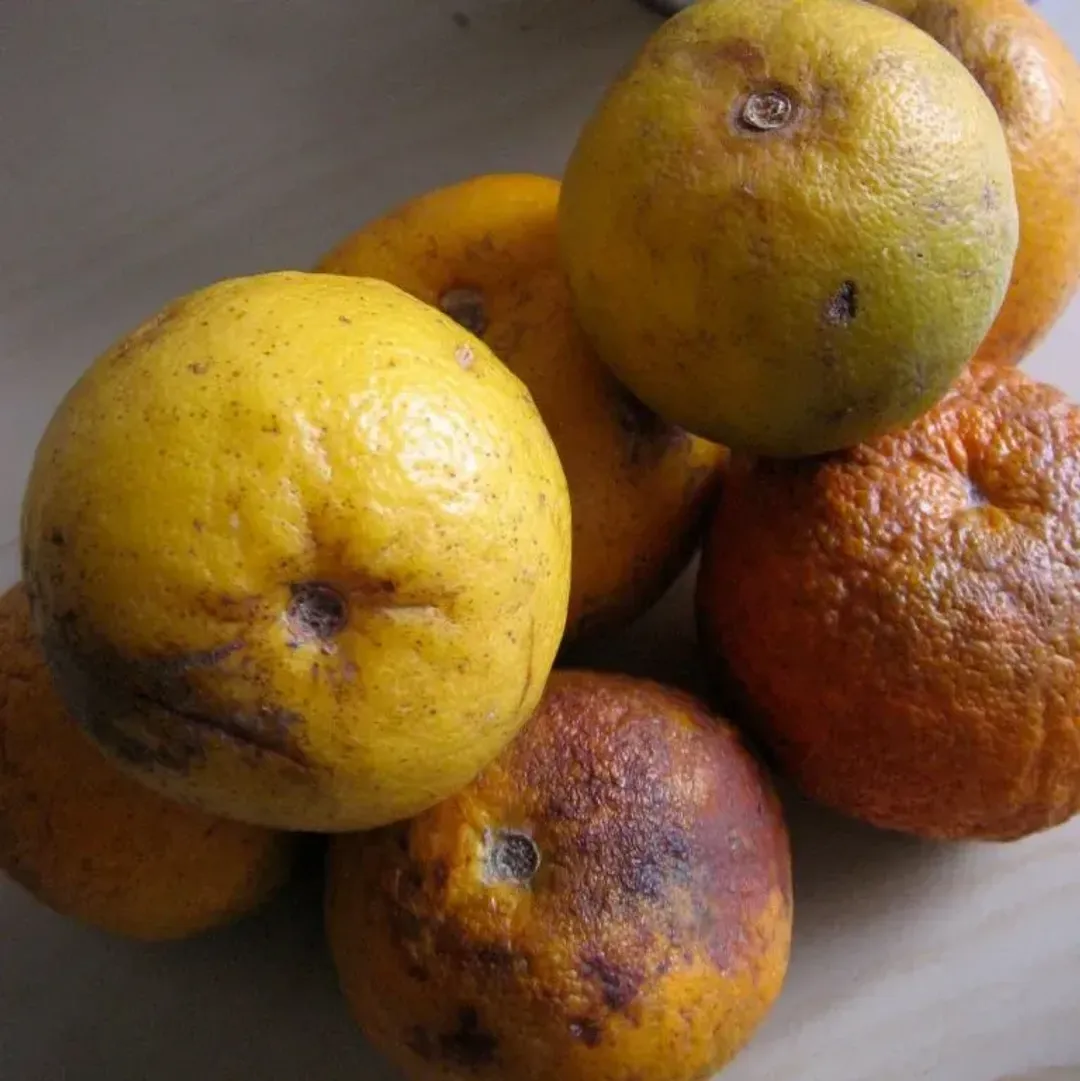
‘Good’ oranges are firm with a smooth texture. So you can tell if one is bad by its soft spots and ‘loose’ skin. In some cases, the outer surface suffers discoloration, turning a brown, lifeless tone.
Another indicator is the smell. Instead of a citrusy aroma, bad oranges release a foul, rotten odor.
9. What Is The Best Time To Drink?
Recent studies show that when taken with any meal, this juice may decrease fat mass. So you can have it with your breakfast, lunch, or dinner. On the flipside, taking it in between meals may increase body fat.
10. What Happens If I Drink Every Day?
We often say that ‘too much of a good thing is bad.’ But drinking this juice every day may actually benefit your health, especially in the long run.
Studies show that regularly consuming vitamin C could improve cold symptoms. So, rather than drinking it after catching a cold, try to incorporate it into your daily routine to give your body a fighting chance.
We do, however, suggest that you monitor the consumption of orange with added sugars. The American Heart Association advises that individuals restrict daily added sugars to 36 grams (3 tablespoons) for men and 25 grams (2 tablespoons) for women. (On average, Americans consume over three times this amount!)
And though sugar gets a bad wrap, your body needs it for energy and to manage blood glucose levels. Sugar is especially useful for low blood sugar, where glucose effectively treats hypoglycemia.
Because added sugars convert to calories very quickly in your system, they may have adverse effects. So always check the nutrition label. And observe the quantity of sugar you use in your own home-made orange juice!
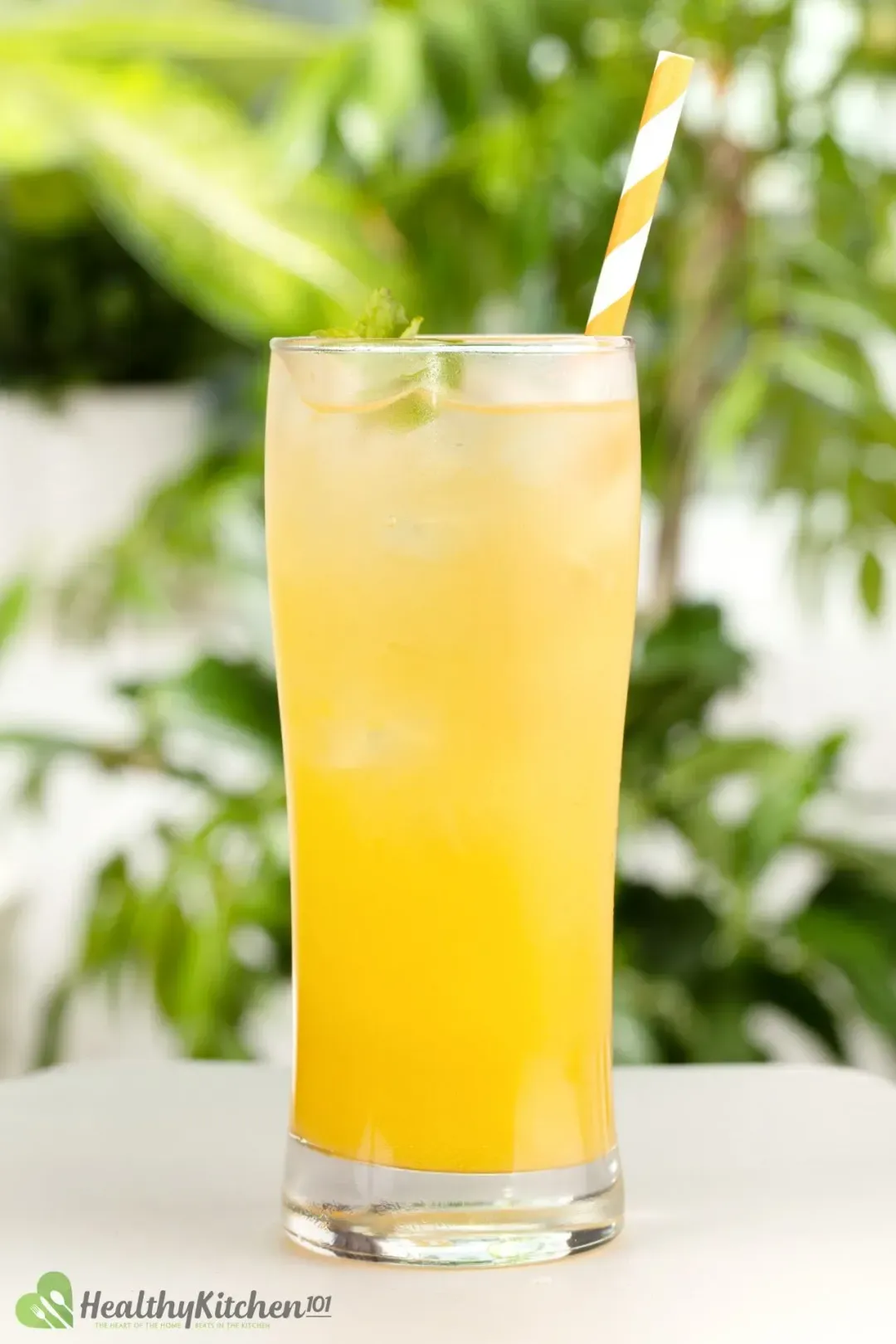
Top 10 Orange Juice Recipes
Whether for a party, cocktail, or breakfast beverage, we have some fun ideas to inspire you in these top 10 orange juice recipes!
Ingredients
- Vodka and Orange Juice
- Simply Orange Juice
- Orange Pineapple Juice
- Milk and Orange Juice – Morir Soñando
- Carrot Orange Juice
- Orange Juice and Champagne
- Rum and Orange Juice
- Whiskey and Orange Juice
- Carrot Orange Pineapple Juice
- Orange Mango Juice
DIRECTIONS
- Choose a recipe that you like.
- Prepare all the essential ingredients.
- Grab your juicer/blender and follow the instructions to make delicious, healthy drinks in less than 10 minutes.
Luna Regina
Writer, Author
- Monica HartfordMilk and orange juice is absolutely delicious, i just love it.
- HM RaymondNothing beats a fresh glass of orange juice!
- fruitdogMade vodka and orange juice, it came out so good.
